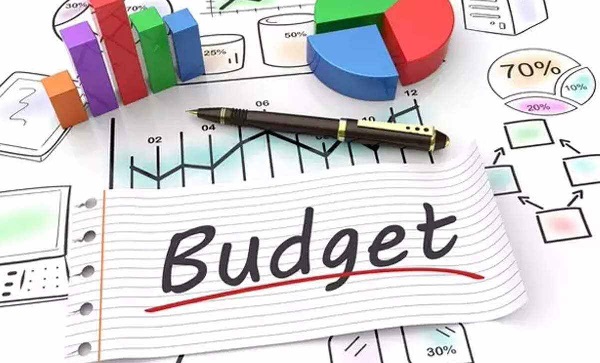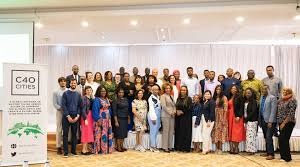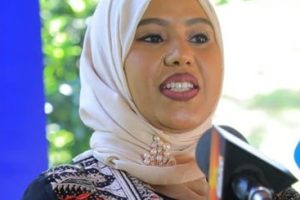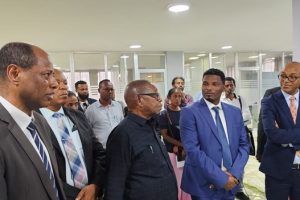
House of Peoples Representatives has approved 386,954,965,289 Birr fiscal budget for 2019/2020 (2012 E.C) on 8 July 2019. This year’s fiscal budget has shown 40 billion Birr increment from last year’s. This budget would be expected to cover the three components such as capital and recurrent budgets as well as subsidies to states.
Is the approved budget enough to ensure the fulfillment of envisaged governmental goals? What were the challenges in managing allocated budget in the previous years? How should the budget be utilized in a way of sustaining the rapid economic growth and livelihood of low income Ethiopians?
The government should strive in managing allocated budget properly so as to maintain the fastest economic growth through curbing corruption and other mismanagement factors, Bezabih Ayele, Economics Lecturer at Addis Addis Ababa told The Ethiopian Herald. He states that the 2019/2020 budget is massive in number though there is skepticism that it may be misused.
‘‘Honestly speaking it is a huge amount of budget. Compared with last year’s fiscal budget, the 40 billion birr increase means a big leap forward. However, I have reservation pertaining to ways of using it. The federal and state governments should manage their budget properly so as to achieve the intended goals,’’ he insists.
As to him, wasteful expenditures, embezzlement, corruption and other mismanagement-related activities are among the major factors that hinder the government from utilizing the allocated budget. Hence, a strong anti-corruption system needs to be hard at work.
Government structures that encourage and promote transparency and accountability are highly crucial for proper management and fair distribution of fiscal budget, according to Bezabih.He further elaborates that states which do not use their budget properly should be warned and necessary measures should be taken.
‘‘There are states that squander their annual budget on endless conferences, festivals and as well as allowances. Such disposition wastes public money. Many projects suffer delay due to lack of finance. Hence, rules and regulations regarding budget utilization need to be revised,’’ he points out.
The lecturer emphasized that since Ethiopia has a huge debt burden, it should maximize it income generating mechanism to slash down loans and grants.
‘‘If it wants to realize its goal of becoming middle income nation, Ethiopia should gradually avoid foreign aid and loan dependency. The debt burden could have a negative influence on its budget. So, it must improve its export trade to cover budgetary expenditures,’’ according to him.
Still Ethiopia has a low trend of collecting taxes and revenues. This has a negative effect on its national budget. Bezabh urges the government and other pertinent stakeholders to create awareness among the general public on tax collection responsibilities.
According to UNDP, Ethiopia 2018 report, Ethiopia has shown a significant development in budget and resource allocation. Given the policy imperative of accelerating economic growth, the level of federal budget has been increasing from year to year. The level of recurrent expenditure, subsidies to states and capital expenditure have respectively increased from Birr 10.8 billion Birr, 14.2 billion Birr and 18.9 billion Birr in 2007/8 to more than 109.4 billion Birr, 140.7 billion Birr and 130.7 billion Birr in 2018/2019 fiscal year.
Dawit Yigzaw, Economics Lecture and analyst at Addis Ababa University for his part says the decision of allocating over 70 percent of the federal budget for basic infrastructures and social welfare should be encouraged.
‘‘More than 80 percent of Ethiopians live in rural areas of the country with no or limited social service and infrastructural development. Especially, education, health, roads, agriculture, water and sanitation are in abysmal level in remote areas. Hence, it is fair to allocate most of the budget for these sectors,’’ he insists.
Dawit calls for the government to give attention to low-income societies and people who are vulnerable to drought and other catastrophes. Climate change related drought has been a serious challenge for the country over the last two decades, he notes. ‘‘The budget being apportioned as subsidy should be increased since it would have pivotal role in tackling drought and other problems.’’
Ethiopia is a resource-blessed nation with young and energetic demographic base. Hence, it has a bright future towards rejuvenating its greatness. However, if it does not properly utilize its resource, it could not realize its goals of becoming a middle income nation. Having understood this, budget and resource allocation and utilization should be improved.
The Ethiopian Herald, July 14/2019
BY TSEGAY HAGOS





